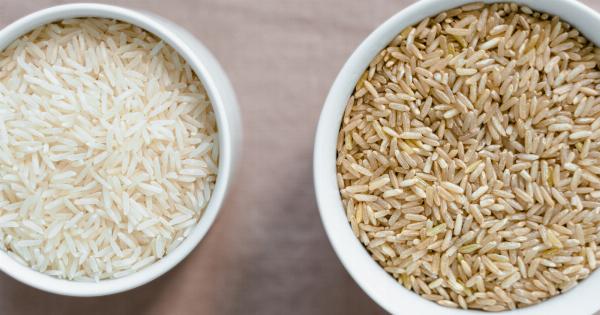Bowel obstruction in the ileum is a medical condition that occurs when there is a blockage in the small intestine, usually in the ileum part of the intestine. The ileum is located at the end of the small intestine, just before the colon.
Bowel obstruction can lead to severe pain, bloating, vomiting, and dehydration. Some of the common causes of bowel obstruction in the ileum include:.
1. Adhesions
Adhesions are bands of scar tissue that can form after surgery or inflammation in the abdominal area. These adhesions can connect different parts of the intestines or other organs, leading to a blockage in the ileum.
According to the American Society of Colon and Rectal Surgeons, adhesions are the most common cause of bowel obstruction in the elderly.
2. Hernias
A hernia occurs when an organ or tissue protrudes through a weak spot in the muscle or tissue that surrounds it. In the case of the ileum, a hernia can cause a portion of the intestine to bulge out of the abdominal wall, leading to a blockage.
According to the National Institute of Diabetes and Digestive and Kidney Diseases, hernias are the second most common cause of small bowel obstruction.
3. Crohn’s Disease
Crohn’s disease is a chronic inflammatory bowel disease that can cause inflammation and scarring of the small and large intestines. In severe cases, the inflammation and scarring can lead to a blockage in the ileum.
According to the Crohn’s & Colitis Foundation, ileal strictures (narrowing of the ileum) are one of the most common complications of Crohn’s disease.
4. Intussusception
Intussusception is a rare condition that occurs when one portion of the intestine slides into another portion, much like a telescope. This can lead to a blockage in the ileum. Intussusception is more common in children, but can also occur in adults.
According to the National Institute of Diabetes and Digestive and Kidney Diseases, intussusception is the most common cause of small bowel obstruction in children.
5. Tumors
Tumors, both benign and malignant, can also cause a bowel obstruction in the ileum. These tumors can grow within the intestine or press on it from the outside.
According to the American Cancer Society, small intestine cancer is rare, accounting for only about 1% of all gastrointestinal cancers.
6. Volvulus
Volvulus occurs when a portion of the intestine twists on itself, causing a blockage. This twisting can occur at any point in the intestine, including the ileum.
Volvulus is more common in older individuals and can be caused by a variety of factors, including adhesions, hernias, and tumors.
7. Foreign Objects
Foreign objects, such as swallowed objects or bezoars (collections of undigested material), can also cause a blockage in the ileum. These objects can get stuck in the intestine and prevent the normal flow of food and fluids.
According to the National Institute of Diabetes and Digestive and Kidney Diseases, bezoars can be caused by consuming large amounts of indigestible material, such as hair, vegetable fibers, and plant material.
8. Meckel’s Diverticulum
Meckel’s diverticulum is a congenital condition in which a pouch or sac protrudes from the wall of the small intestine. This pouch can become inflamed or twisted, leading to a blockage in the ileum.
Meckel’s diverticulum is present in about 2% of the population and is more common in males.
9. Strictures
Strictures are narrowed sections of the intestine that can cause a blockage. These strictures can be caused by a variety of factors, including Crohn’s disease, radiation therapy, and infections.
According to the American College of Gastroenterology, strictures are a common complication of Crohn’s disease and can occur in up to 30% of patients with the disease.
10. Fecal Impaction
Fecal impaction occurs when hardened fecal matter becomes stuck in the intestine, leading to a blockage. This can occur in any part of the intestine, including the ileum.
Fecal impaction is more common in older individuals and those with chronic constipation or neurological disorders.



























